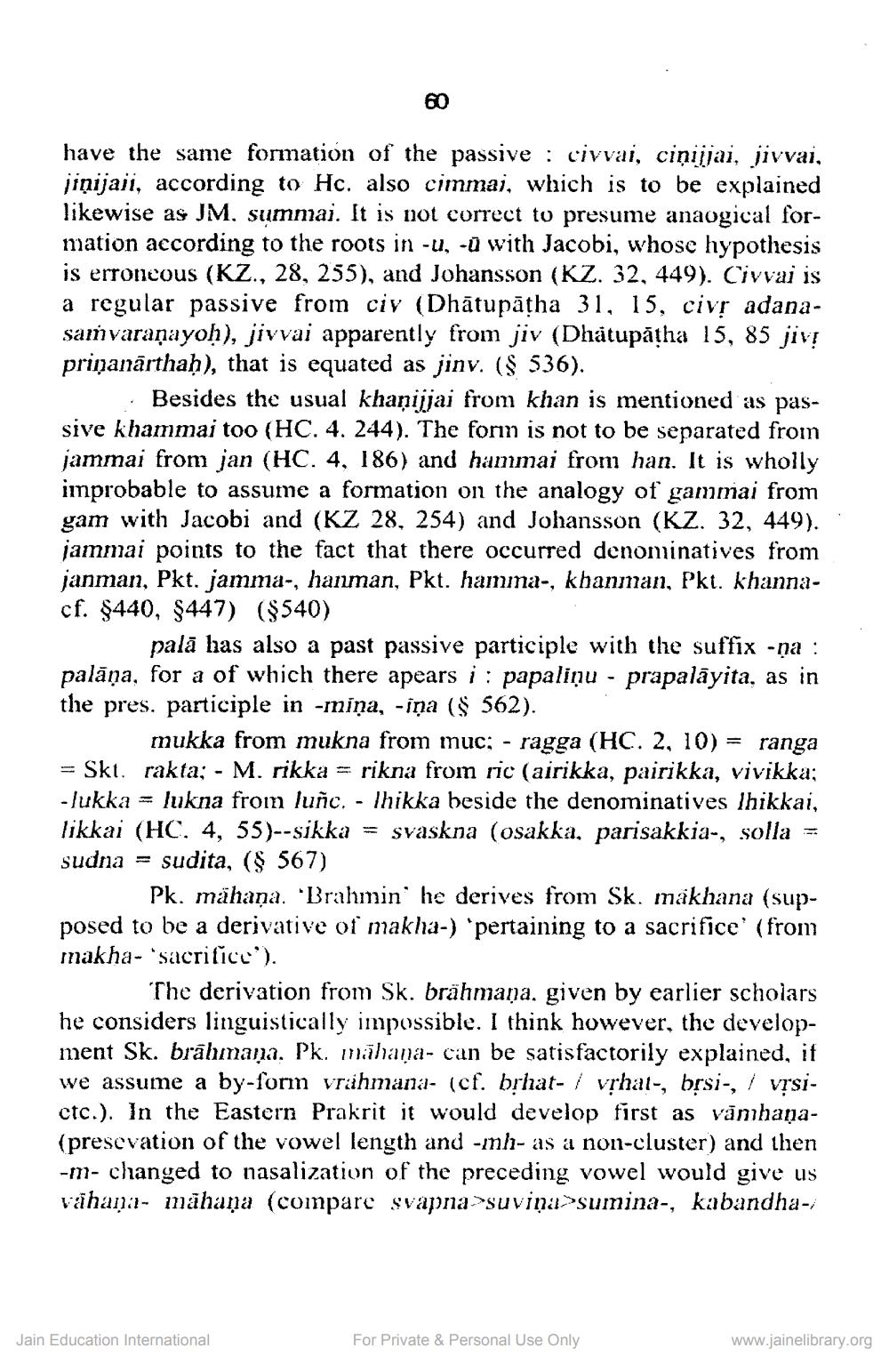________________
have the same formation of the passive : civvai, ciņijjai, jivvai, jiņijaji, according to Hc. also cimmai, which is to be explained likewise as JM. summai. It is not correct to presume anaogical formation according to the roots in -u, -Ŭ with Jacobi, whose hypothesis is erroneous (KZ., 28, 255), and Johansson (KZ. 32, 449). Civvai is a regular passive from civ (Dhātupātha 31, 15, civị adanasamvaranayoh), jivvai apparently from jiv (Dhatupātha 15, 85 jiv priņanārthaḥ), that is equated as jinv. ($ 536).
Besides the usual khamijjai from khan is mentioned as passive khammai too (HC. 4. 244). The forın is not to be separated from jammai from jan (HC. 4, 186) and hammai from han. It is wholly improbable to assume a formation on the analogy of gammai from gam with Jacobi and (KZ 28, 254) and Johansson (KZ. 32, 449). jammai points to the fact that there occurred denominatives from janman, Pkt. jamma-, hanman, Pkt. hamma-, khanman, Pkt. khannacf. $440, $447) (3540)
palā has also a past passive participle with the suffix -ņa : palāņa, for a of which there apears i : papaliņu - prapalāyita, as in the pres. participle in -miņa, -iņa ($ 562).
mukka from mukna from muc; - ragga (HC. 2, 10) = ranga = Skt. rakta; - M. rikka = rikna from ric (airikka, pairikka, vivikka; -lukka = lukna from luñc. - Thikka beside the denominatives Thikkai, likkai (HC, 4, 55)--sikka = svaskna (osakka, parisakkia-, solla = sudna = sudita, (S 567)
Pk. mähaņa. 'Brahmin' he derives from Sk. makhana (supposed to be a derivative of makha-) 'pertaining to a sacrifice' (from makha- 'sacrifice').
The derivation from Sk. brähmana, given by earlier scholars he considers linguistically impossible. I think however, the development Sk. brāhmaṇa. Pk. māhana- can be satisfactorily explained, it we assume a by-form vrähmana- (cf. brhat-1 vrhat-, brsi-, / vrsietc.). In the Eastern Prakrit it would develop first as vāmhana(presevation of the vowel length and -inh- as a non-cluster) and then -07- changed to nasalization of the preceding vowel would give us vähaņa- māhaņa (compare svapna-suviņasumina-, kabandha
Jain Education International
For Private & Personal Use Only
www.jainelibrary.org




